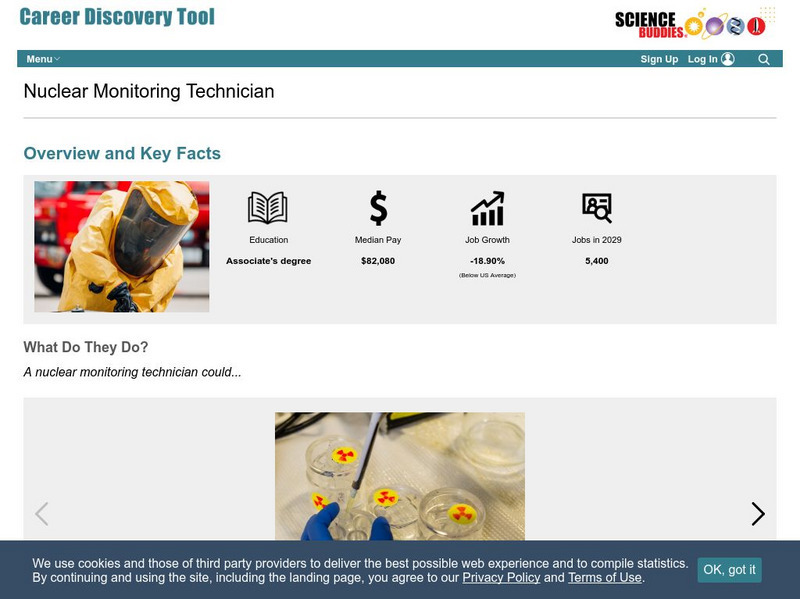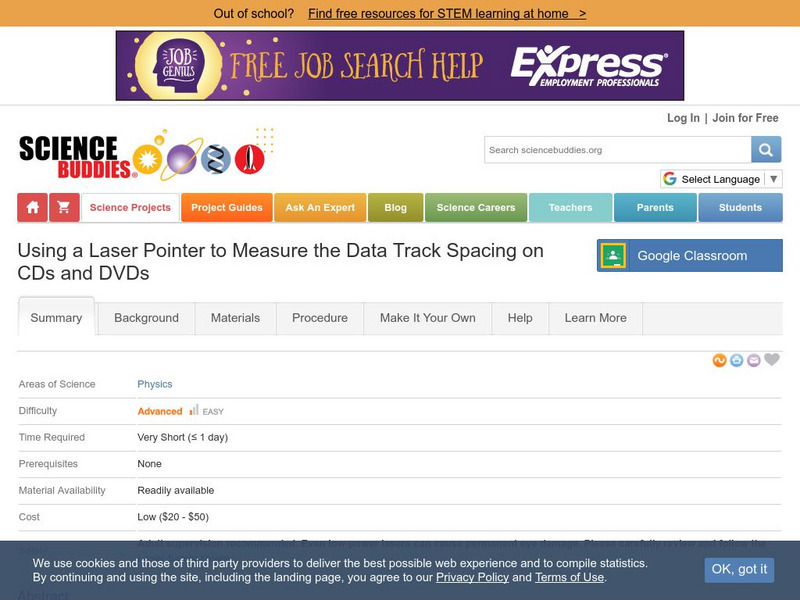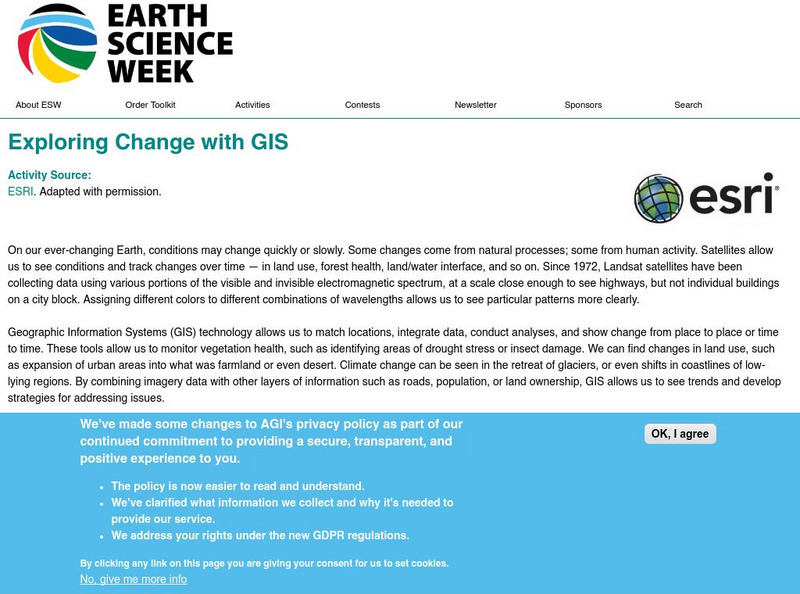Science Buddies
Science Buddies: Cd Burning: Take It to the Edge
Did you know that you can tell how much information is on a CD-R without even using a computer? Find out how in this "reflective" experiment.
Canada Science and Technology Museum
Canada Science and Technology Museum: Background Information for Canada in Space
Canada has accomplished some important achievements in space technology. Use the links to explore the main topics. Educators will appreciate connecting to the school program "Space: Space Exploration" on this site.
Science Buddies
Science Buddies: Career Profile: Nuclear Monitoring Technician
With the increasing use of nuclear technology in medicine, energy, and even agriculture, there is a need for monitoring radiation exposure. That is the job of the nuclear monitoring technician. Science Buddies offers a career profile...
Science Buddies
Science Buddies: Solubility of Proteins
Some proteins are soluble in aqueous solutions and some are not. Insoluble proteins can be a problem because the proteins can form large aggregates in solution which are difficult to purify, crystallize, and use in experiments. Compare...
Science Buddies
Science Buddies: Using Laser Pointer to Measure Data Track Spacing on C Ds, Dv Ds
You've probably noticed the colorful patterns "reflecting" from the shiny surface of a CD disk. What you are seeing is actually diffraction of white light, and the rainbows of color are diffraction patterns. In this project you'll learn...
Science Buddies
Science Buddies: Effects of Food Preservatives on the Growth of Microorganisms
The problem of protecting food from spoilage has been with us since prehistoric times. The solutions to this problem have changed with advances in technology and knowledge about what causes food to spoil. This project uses liquid...
University of Utah
University of Utah: Genetic Science Learning Center: What Is Cloning?
Media-rich detailed description of modern cloning technology and the two different processes used: artificial embryo twinning and somatic cell nuclear transfer.
Canada Science and Technology Museum
Canada Science and Technology Museum: Background Information for Magnets
What makes a magnet? Learn all about magnets in this Q&A section. Educator resource materials are linked to this site.
Other
How Technology Is Improving Productivity and Efficiency in Manufacturing Sector
The article describes how the use of different types of technology are improving manufacturing efficiencies, including 3-D printing, metrology (science of measurement), exoskeleton suits, and drones.
American Geosciences Institute
American Geosciences Institute: Earth Science Week: Exploring Change With Gis
Gives an overview of how Geographic Information Systems technology is used to monitor changes in conditions on the Earth. Provides a link to the website with lessons on using GIS. (Due to site changes, you may need to search for teachers...
Other
Business Education Resource Consortium: Computer Science & Information Systems
In this online manual you will find examples of integrated performance activities developed to coordinate with the Computer Science and Information Systems Career Path in the Business Education Career Path and Model Curriculum Standards....
Center for Innovation in Engineering and Science Education, Stevens Institute of Technology
Center for Innovation in Engineering and Science Education: Reverse Engineering
Students use reverse engineering to examine, classify, diagram, and identify the purpose and technological impacts of the components of two different single-use cameras.
Library of Congress
Loc: Everyday Mysteries: What Is Gps?
Where are you and where are you going? Visit this site and learn the discovery and purpose of GPS, Global Position Systems.
Alabama Learning Exchange
Alex: Endangered Species
Students research and create a brochure project on an endangered species of their choice integrating aspects of math, science, social studies, art, reading and writing. This project allows the students to make connections across the...
Alabama Learning Exchange
Alex: To Herb or Not to Herb
This unit allows students to research some common herbal supplements to evaluate the safety and effectiveness of the herb. Students will compare the herbal supplements to pharmaceutical medicines to judge which is the better choice....
Alabama Learning Exchange
Alex: Those Cells Look Good Enough to Eat.
This is a student led activity utilizing visualization and association to memorize the parts of animal and plant cells. Learners will work cooperatively to develop drawings to connect the parts of cells to one of their favorite things:...
Alabama Learning Exchange
Alex: Beanie Baby Habitats Collaborative Project
With the booming market of "Beanie Baby" type stuffed animals being so prominent in learners' lives, this project brings that interest into the classroom through the use of research, science, hands-on experiences, and technology. The...













